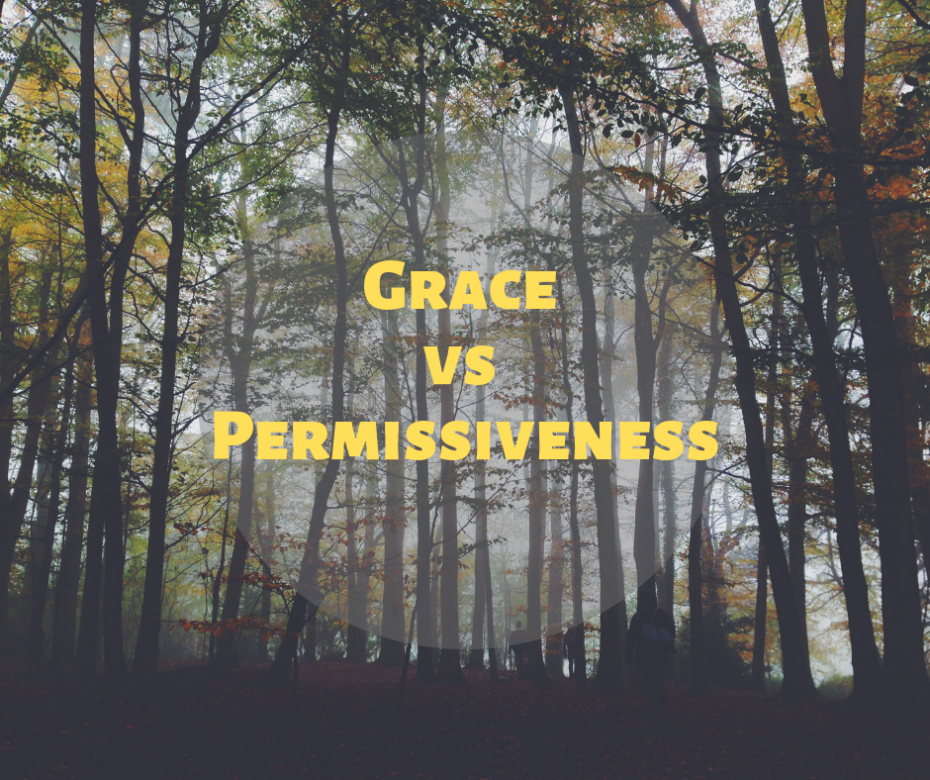I was recently chatting with an Episcopal priest about grace. He was very nice, and it was a pleasure talking to him. I asked how the message of grace was received in the Episcopal church. He suggested that while the Episcopal church is not very theological—in that people are not talking about and debating theology—he thought it was a very grace-oriented denomination.
Then it hit me—what he meant by “grace,” I would call “permissiveness.”
Actually, that’s not fair.
There were big chunks of agreement between us about what having a gracious God means.
For example, we agreed that God loves everyone, Jesus died for everyone, no one earns salvation by works, and God accepts messed up people—no matter how messed up—at the point of faith.
Frankly, those are important areas of agreement about what it means for God to be graceful, and many churches would strongly disagree with us. (We didn’t get into the nitty gritty of faith alone or eternal security, so I don’t know what he would say about that.)
But as we continued to chat about grace in the Episcopal church, the subtext became about grace and homosexuality, transsexuality, and other behaviors. He didn’t mention those things explicitly. I think that’s what we were really talking about. And for this priest—if I read him right—the graciousness of the Episcopal church meant saying those things are not sins. And that’s when it hit me that for him, “grace” included permissiveness.
Admittedly, even here, you could find some agreement between us. Free Gracers would agree that God loves homosexuals and transsexuals. We would say those sinners, like all sinners, can be saved by simply believing in Jesus for eternal life without having to clean up their lives first. God takes them as they are, through faith, apart from works. And if they believe in Jesus, they’ll be eternally secure forever, whether they change their lives or not.
The Episcopal priest would probably agree with most of that (I don’t know about the eternal security part, though), except he might clarify they don’t have to clean up their lives because there’s nothing to clean up. He might say, God approves of homosexuality and transsexualism and all the rest of it. (Again, I don’t know for sure if that was the priest’s views, but it would be the view of many within the Episcopal church).
So, oddly enough, in that particular battle, we might be on the same side. And I think that’s a significant battle—for the freeness of eternal life. I would want people who identity as homosexuals and transsexuals to know that God loves them, Jesus died for them, and they, too, can receive eternal life freely, by simply believing in Jesus for it.
HOWEVER—
“What shall we say then? Shall we continue in sin that grace may abound?” (Romans 6:1).
Paul’s answer is no.
Despite claims that Free Grace will promote sin, the truth is we have a strong doctrine of practical holiness.
That is, you are not just righteous in your position—you are expected to be holy in your behavior.
We take grace seriously. Very seriously. But taking grace seriously means taking practical righteousness and holiness seriously, too, just as Paul does in Romans 6– 8.
We should not let sin reign in our bodies (Rom 6:12).
We should not present our bodies as instruments of unrighteousness (Rom 6:13).
Sin should not have dominion over us (Rom 6:14).
Of course, when you sin, you have an advocate in Jesus (1 John 1:8, 10; 2:1). If you walk in the light and confess your sin, Jesus will forgive you every single time (1 John 1:7, 9). And more than that, God gives you grace, so you may not sin (1 John 2:1).
Grace is forgiving, but not permissive.


